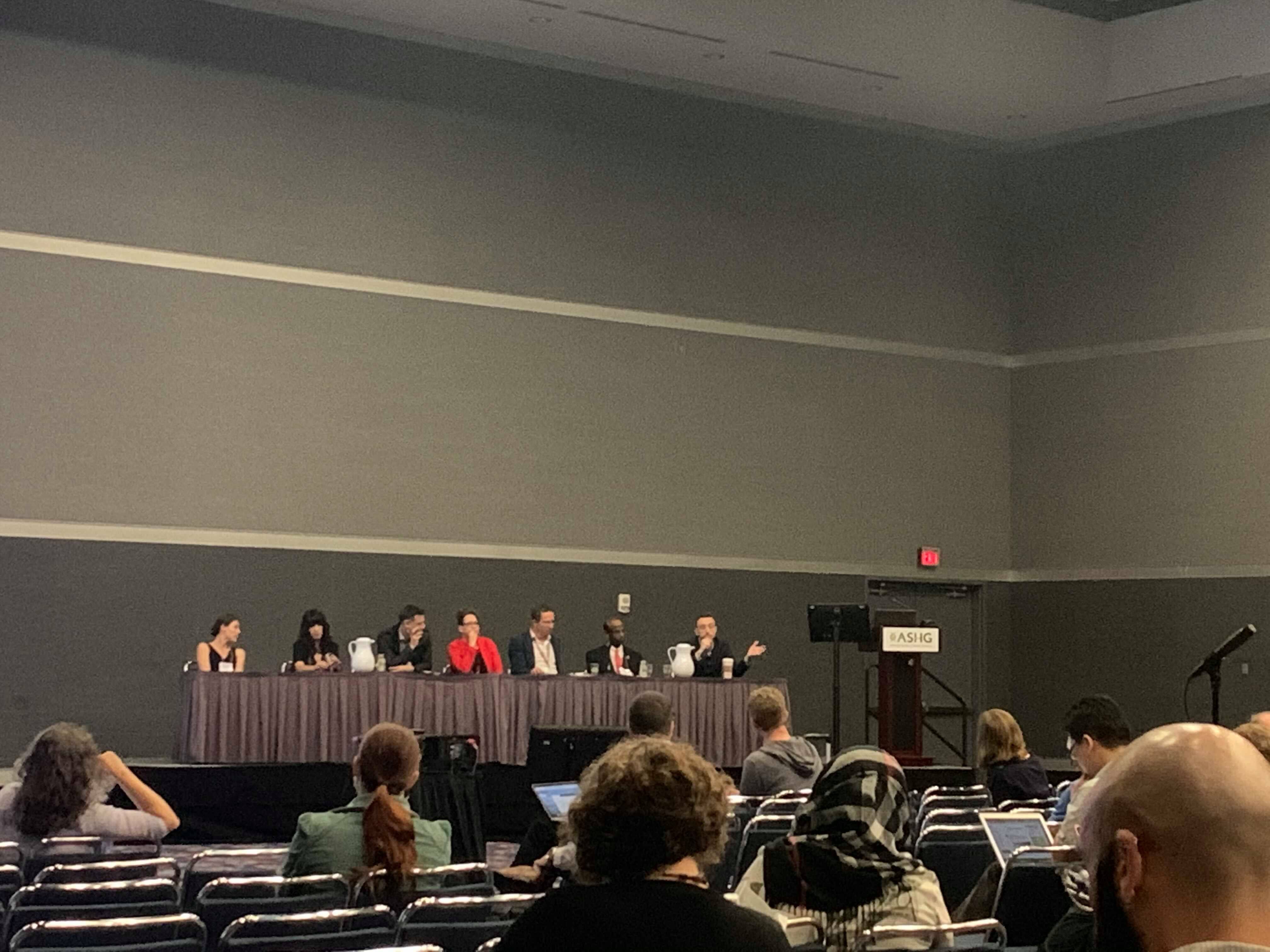Posted By: Ann Klinck, Communications and Marketing Assistant, ASHG

The ASHG/ESHG Building Bridges session at the ASHG Annual Meeting examines topics of interest to geneticists around the globe. This year, panelists discussed the potential policy implications of genetic research into educational attainment. Recent genome-wide association studies show that polygenic scores (PGS) of common variants can explain a portion of variance in educational attainment (EA). What does this mean for questions such as whether polygenic scores for educational attainment should be used in school admissions, or to identify children likely to need specific educational help?
If you missed the session but are interested in learning more, here’s a brief summary with the some of the top takeaways. A recording of this session will be made available after the Annual Meeting.
Who were the Experts?
Moderators: Kiran Musunuru, ASHG and Joris Veltman, ESHG
Panelists:
- Alexander Young, PhD, MPH, University of Oxford
- Dalton Conley, PhD, Princeton University & NBER
- Kathryn Paige Harden, PhD, University of Texas at Austin
- Aysu Okbay, PhD, Vrije Universiteit Amsterdam
- Melinda Mills, PhD, University of Oxford & Nuffield College
How Educational Polygenic Scores Could be Used
Using PGS to predict EA has negative and positive implications, the panelists explained. It could lead to the selection of different embryos in hopes of future higher educational attainment, or the use of PGS in school admissions and to attempt precision education. Another possibility is that insurers and other companies may use PGS to attempt to predict customer behavior.
The panelists emphasized that EA should not be used on an individual level to receive precision education, and that it is more useful when trying to examine groups of people. Additionally, other factors, such as parental education level, have been found to more strongly predict an individual’s EA.
EA prediction could be used positively to provide resources to those with a lower predicted EA. Like socioeconomic standing, it could be used to prioritize equity in educational opportunities. Dr. Okbay also noted that information like PGS predicting EA could be used to measure labor market ability and interactions between education reforms and ability.
Public Policy Implications
The panelists expressed concern about a lack of regulation on the potential use of PGS by insurance companies, schools, employers, and others to make individual-level assumptions. Without regulation, people who don’t fully grasp the limitations of PGS could use them to misrepresent an individual. Until there is more representation in research, the panelists said, scientists should help policymakers understand why PGS should not be used broadly at this time in a way that could affect a person’s opportunities or freedoms.
Does the Public Want to Use Polygenic Scores?
The panelists presented research indicating that most people would be comfortable using PGS in the context of preventing diseases like diabetes. Approaches that provided patients with more information to empower their decision-making was favorable. However, participants were less comfortable with the potential use of PGS to take away their autonomy, such as schools rejecting students based on a score. They also were not interested in using PGS to create certain physical attributes.
Takeaways
During the hour-long Q&A, several themes and takeaways arose:
- Polygenic scores should not currently be used to predict individual-level educational attainment.
- Currently, 80-90% of genetic discovery is within populations of European ancestry. Improving diversity in research will result in improved EA predictions.
- There is a need for public policy regulating the use of EA to decide admission to a program or opportunities given.
- There can be positives of using PGS in EA, such as making the educational system more equitable.
